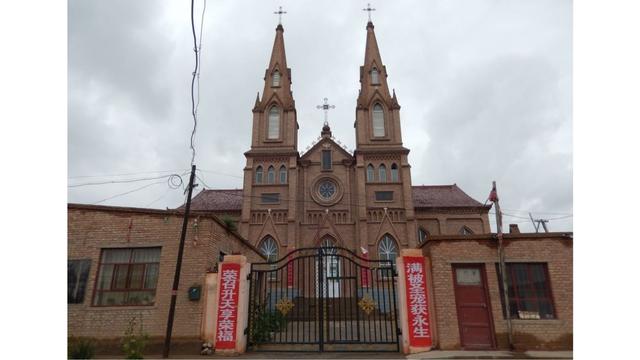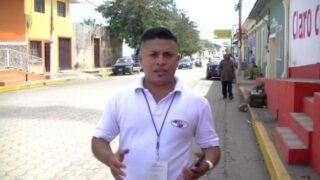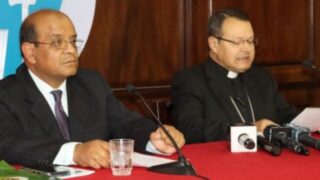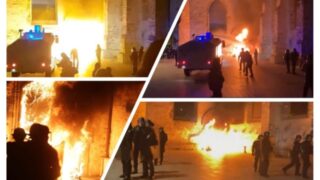The Pope is widely criticized for his statement that “the Agreement is good and I hope it can be renewed.” Not renewing it may be a problem, too.
by Massimo Introvigne


Earlier this month, Pope Francis was interviewed by Reuters on the Vatican-China deal of 2018, which is up for the second two-year renewal in October 2022. The Vatican’s own news portal reproduced the part of the interview about China, making it somewhat more official.
Francis said that “the Agreement is good, and I hope it can be renewed in October.” He commented that “It is going slowly, but [some bishops] have been appointed. It is going slow, as I say, ‘the Chinese way,’ because the Chinese have that sense of time, that no one can rush them.” He also believes that the Chinese authorities “also have problems because it is not the same situation in every region of the country,” and how the agreement is implemented “depends on the local leaders, there are different ones.”
Answering implicitly criticism by Hong Kong’s retired Cardinal Joseph Zen and others that he is being misled by his Secretary of State, Cardinal Pietro Parolin, the Pope added that, “The one who is handling this agreement is Cardinal Parolin, who is the best diplomat in the Holy See, a man of high diplomatic standing. And he knows how to move, he is a man of dialogue, and he dialogues with the Chinese authorities. I believe that the commission that he chairs has done everything to move forward and look for a way out. And they have found it.”
Francis’ rationale for this defense is that Vatican diplomats have always been criticized for their dealings with totalitarian regimes, only to be rehabilitated after several decades. “Many people said so many things against John XXIII, against Paul VI, against [Cardinal Agostino] Casaroli,” Francis said. “But diplomacy is like that. Faced with a closed situation, one must seek the possible, not the ideal, path. Diplomacy is the art of the possible and making what is possible become a reality. The Holy See has always had these great men. But this [diplomacy] with China is being carried out by Parolin, who is great in this area.”


The Pope here referred to one historical interpretation, that the so-called Ostpolitik promoted by Cardinal Casaroli, which many Christians in Eastern Europe perceived as “soft on Communism,” in fact by exchanging a certain amount of legitimization of the Soviet Union by the Holy See against spaces of freedom for the Catholic Church in the satellite countries, limited as they were, prepared the fall of the Communist regimes. It is a controversial interpretation of history, but it has its academic supporters.
Critics, however, argue that the situation with China is different. Cardinal Casaroli never allowed the Communist regimes in Eastern Europe to select the Catholic Bishops there, a power that the Vatican-China deal grants, in practice, to the CCP. In theory, the Vatican can reject the CCP selection of new Catholic Bishops, disguised as choice by the “patriotic” Catholic devotees, but in practice Rome has accepted all the CCP-selected prelates.
Some see the words of the Pope as a sell-out to China, and these some include senior scholars of Chinese religion. For example, Yang Fenggang, arguably the leading Chinese sociologist of religions, wrote on Facebook of Pope Francis after the Reuter interview: “Compliant or complicit? That’ll be the question historians have to answer about him.”
This is an understandable reaction, as it is difficult to reconcile the Pope’s statement that “the Agreement is good” and Cardinal Parolin “has found a way out” with the fact that dissident priests continue to be jailed and several Catholic Bishops who had “disappeared” have not reappeared. Yet, it is important to understand the issues on the table of the renewal negotiations.
In the People’s Republic of China, religions that have their leaders abroad are forbidden. In 1957, Chairman Mao formed the Patriotic Catholic Church (an invention of Xi Jinping’s father, Xi Zhongxun) whose Bishops were appointed by the CCP and broke their ties with Rome—which reacted by excommunicating them and declaring the Chinese Church schismatic. A sizable part of the Chinese Catholics remained loyal to the Vatican and became part of an “underground Catholic Church,” which was severely persecuted.


When the 2018 agreement was signed, the Vatican and some scholars favorable to it argued that in China there had never been two churches, one “patriotic” and one “underground,” and this was an invention of Western scholars. Theologically, one can argue that the devotees of the Patriotic Catholic Church had accepted to join it under duress and were still spiritually part of the Catholic Church. Sociologically, however, that the two communities, patriotic and underground, lived separately is difficult to deny. What is true is that, particularly since Benedict XVI succeeded John Paul II, the separation became less clear-cut. Some “patriotic” bishops (but not all), who from the point of view of the Vatican had been consecrated unlawfully, went to Hong Kong and got lawfully re-consecrated. In some dioceses (but not in all) the Vatican appointed as local bishop in communion with Rome the same person who had already been appointed as the bishop of the Patriotic Catholic Church.
After the Vatican-China deal of 2018, whose text remains secret, in practice the “underground” Catholics were asked by the Vatican to join the Patriotic Association, which was declared by the Holy See as no longer separated from Rome and a legitimate expression in China of the one and only Catholic Church. The Vatican explained that an “underground” church had lost its reason to exist, and there was now only one unified Catholic Church in China.


Some Chinese Catholics who had been part of the underground did join the Patriotic Church, and some didn’t. Those who didn’t included bishops, in addition to priests and laypersons, and a new category was created, the “conscientious objectors.” These are the Chinese Catholics who recognize the authority of the Pope and the Vatican, yet do not accept Rome’s suggestion to join the Patriotic Association, claiming that their conscience cannot accept the participation in an organization controlled by an atheistic Communist Party.
The Vatican is not happy about the existence of the conscientious objectors and do not encourage their position in any way. Yet, it maintains that they are Catholics in good standing, and in the Vatican Guidelines of 2019—that some in the Vatican now regard as unwise and damaging the relations with the CCP—it asked the Chinese government to treat them with “respect.” The only respect the conscientious objectors got from the CCP was to be systematically harassed and put in jail.
Nobody knows whether the deal has clauses about Hong Kong too, where Cardinal Zen has been arrested, released, and committed to trial under pretexts, in fact for being the most vocal supporter of the conscientious objection position. One problem for both the CCP and the Vatican is that it is now clear that the conscientious objectors are not only old priests and believers who will solve the problem by dying one after the other. Some conscientious objectors are young, and some are seminarians who prepare for the priesthood clandestinely under dissident Bishops.
Critics of Pope Francis contend that before renewing the agreement in October 2022 the Vatican should at least ask that the arrested conscientious objectors be released. We agree, and Bitter Winter is aware of the fact that, unofficially, this is being asked in the negotiations. Clearly, if those jailed are not released and the agreement is renewed, the renewal would be presented by the CCP as a warrant for its continued persecution of the dissidents.


However, a question seldom discussed is what would happen in the hypothetical case that, faced with the CCP’s refusal of releasing the arrested conscientious objectors and treating them with “respect,” the Vatican decides not to renew the agreement. Logically, this should imply that the Holy See would state that, contrary to its 2018 hopes, the Patriotic Association remains a mere tool of the CCP, and good Catholics should not be part of it. Certainly this decision would be welcomed by the conscientious objectors, as their position would be vindicated. As for their relations with the authorities, the conscientious objectors will not be damaged by the non-renewal. They were persecuted before, and will continue to be persecuted after the hypothetical non-renewal. Presumably Cardinal Parolin, as the main responsible of a strategy that would be certified as having failed, should resign (as we have seen, Pope Francis is on the contrary defending him wholeheartedly).
This would be a minor problem, however, compared to what would happen to those former underground Catholics who in 2018 had “emerged” from the underground, had believed the promises of the Vatican, and had joined the Patriotic Association. The Vatican has implied that they are the majority of the former underground Catholics—we don’t know who did the statistics, but certainly even if they do not represent the majority, they are a significant group. We are aware of stories of underground Catholics who managed to keep their affiliation with an illegal brand of religion secret for decades, and revealed themselves only in 2018, when they joined the Patriotic Association.
What should they do if the Vatican does not renew the Agreement? Logically, again, unless they have been converted in the meanwhile into staunch CCP supporters, they should resign from the Patriotic Association, no longer attend the Masses celebrated in the “patriotic” parishes, and go underground again. But those who were not known to the CCP before 2018 are now known. Resigning from the Patriotic Association would be perceived as an open challenge to the CCP, and will surely be severely punished. And they will have good reasons to blame the Vatican for their predicament.
I am not arguing that for the sake of these Catholics the Vatican should now renew the Agreement, and renew it forever, no matter how badly the CCP behaves, or treats the conscientious objectors. This is not my position. I only want to show that the Vatican placed itself in an impossible situation, with both the renewal and the non-renewal carrying with them dramatic consequences.
An old Catholic motto is “Roma locuta, quaestio soluta,” meaning that “when Rome [i.e., the Pope] has spoken, the question should be regarded as solved.” In this case, the Pope has spoken but the question has not been solved at all.









